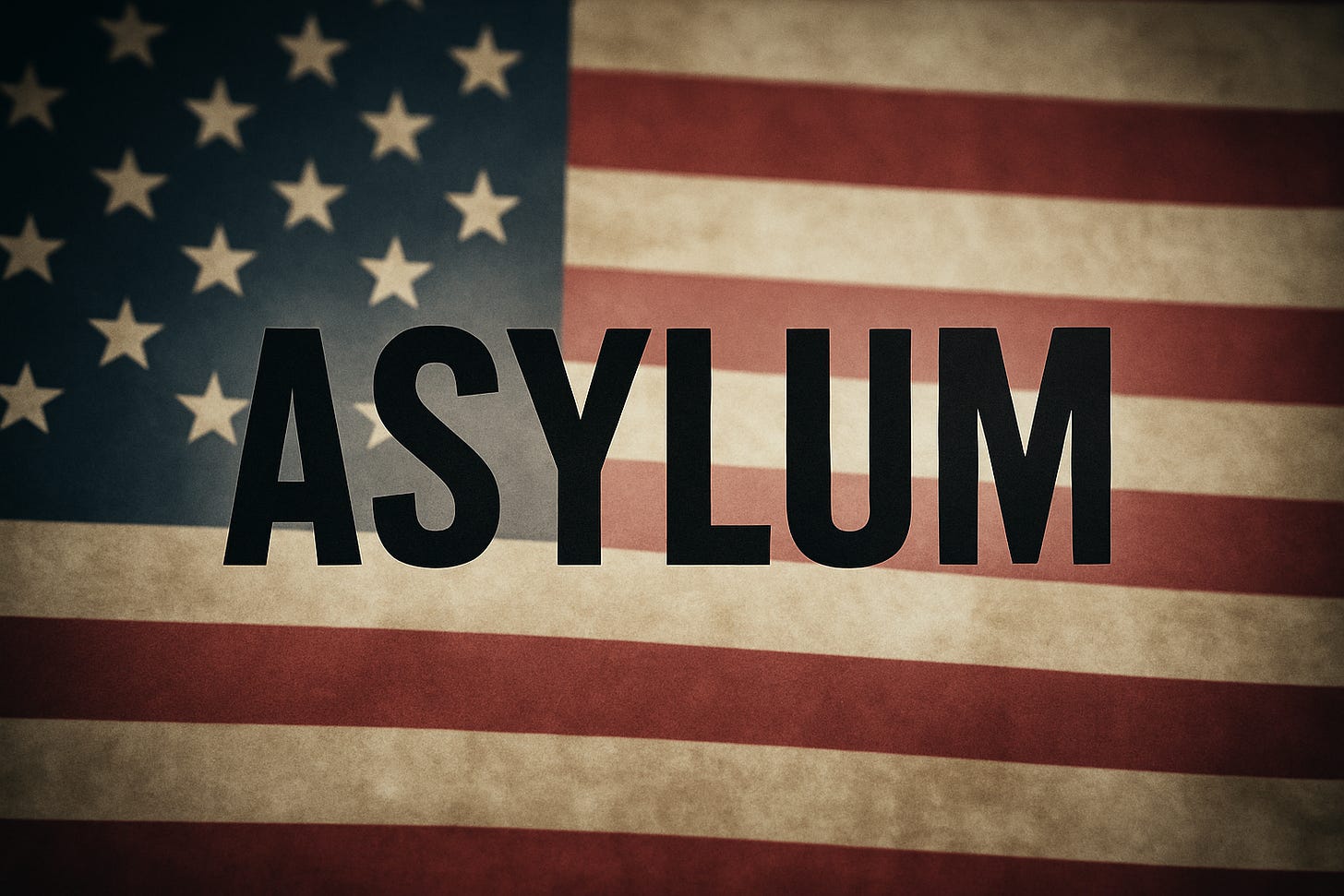Congress Pushes Bills to Revamp Asylum System with New Fee Requirements and Entry Constraints
Legislation introduces sweeping reforms, including for the first time ever, mandatory non-waivable fees for asylum applications and strict new rules on how and where people can request protection.
Holly Springs, NC, Jun. 19, 2025 — Two major proposals now under consideration in Congress, House Bill H.R. 1 (link) and House Concurrent Resolution 14 (link), seek to dramatically reshape the way the United States processes asylum claims, sparking concern among immigration advocates and interest from border policy hardliners. The changes, which would impose new financial, legal, and procedural barriers for those seeking refuge, could have far-reaching impacts nationwide.
While supporters say the measures are intended to restore control at the southern border and deter fraudulent claims, critics warn they could deny protection to the world’s most vulnerable populations.
What is Asylum?
Asylum, as defined by the federal government, is a legal form of protection granted to individuals already in the United States or at its borders who fear persecution if they return to their home country. But this protection isn’t automatic; applicants must meet strict legal standards.
To qualify, a person must show they’ve suffered past persecution or have a well-founded fear of future harm based on one of five protected grounds: race, religion, nationality, political opinion, or membership in a particular social group. These are the only legally accepted reasons.
Unlike refugee status, which is requested from abroad, asylum must be sought while physically present in the U.S. or at a port of entry. The burden is on the applicant to prove their case, often through documents, testimony, or expert support.
At its core, asylum is a legal pathway to safety for those facing real threats, offered not broadly, but based on defined criteria grounded in both U.S. and international law.
The Most Significant Changes at a Glance
The proposed legislation introduces several sweeping reforms, including, for the first time, mandatory non-waivable fees for asylum applications and strict new rules on how and where people can request protection.
Among the most significant proposed changes:
Asylum Application Fees: H.R. 1 would require each individual applying for asylum to pay a non-waivable fee of up to $1,000. This includes adults and children filing as part of a family unit.
Recurring Maintenance and Work Permit Costs: Asylum seekers would also be charged an annual $100 fee while their case is pending, plus up to $550 every six months for work authorization fees that apply to each individual and cannot be waived.
Entry Restrictions: Anyone who crosses the border between ports of entry would be automatically ineligible for asylum, regardless of the dangers they face back home.
Mandatory Detention: Most asylum seekers would be held in detention until at least their initial screening interview is complete. Parole programs that currently allow for release under humanitarian or public interest grounds would be sharply restricted.
Return-to-Country Protocols: The bill would allow the Department of Homeland Security to return asylum seekers to Mexico or Canada while they wait for U.S. court dates, reviving a controversial policy known for exposing migrants to unsafe conditions.
Increased Fees for Children’s Sponsors: A separate provision of H.R. 1 would require any individual seeking to sponsor an unaccompanied child, such as a relative or guardian, to pay a $3,500 upfront fee before the child is released from government custody. This is meant to reimburse the government for care and housing expenses during the child’s stay in federal shelters.
Who Is Affected?
The changes would affect asylum seekers across all demographics—including families, single adults, children traveling alone, and people fleeing war, political persecution, gang violence, and domestic abuse.
For example, a family of four could face:
$4,000 in application fees
$1,200 in maintenance fees over three years
$4,400 in work authorization fees
All told, the total cost could exceed $9,000, excluding legal fees and the cost of remaining in detention.
Supporters Say the System Needs Reform
Lawmakers behind the proposals argue that the current system is being exploited and that more substantial barriers, including financial ones, are necessary to deter fraudulent claims and reduce border chaos.
H.R. 14 frames these reforms as a way to end what it describes as the “abuse of our asylum system,” proposing a crackdown on what it calls “catch-and-release policies” and mass use of humanitarian parole.
Critics Warn of Humanitarian and Legal Risks
Opponents argue that the proposed changes could deny life-saving protection to individuals fleeing unimaginable harm and may violate both U.S. asylum law and international refugee treaties.
They cite:
The financial burden is a barrier, particularly for low-income families and children.
The mandatory detention and forced returns to countries where migrants may face violence or exploitation.
The elimination of long-standing humanitarian discretion, especially the $3,500 sponsor fee for unaccompanied children, could extend custody stays and separate families longer.
A National Issue with Local Relevance
Though most communities are not directly on the front lines of border enforcement, immigration policies shape who arrives, who can stay, and how local services, from schools to legal clinics, respond.
As Congress weighs the future of the U.S. asylum system, the debate over these bills is likely to intensify, raising urgent questions about access, fairness, and America’s commitment to offering a safe haven.

